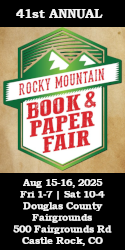Global Warming and the Greenland Question
Is climate change and global warming really happening? Robert Kemp thought so in 2005 and correctly points out that since change, any kind of change, is the only real constant, a better question would be is it a good or bad thing? The entire subject has become so politically-charged nowadays that calm and rational discussion has become nearly impossible, with name-calling the usual response to people who question the accepted political orthodoxy. And since the science has been declared to be settled, scepticism is no longer allowed, especially in front of the children. Apart from climate change true-believers and the folks who run the Creation Museum in Petersburg, Kentucky, I don't know of anyone who believes science, of whatever kind, is ever completely settled.
In Yale's E360 2009 interview with Freeman Dyson, the renowned theoretical physicist at Princeton's Institute for Advanced Study supports the view that science - especially predictive science - is always subject to review. The lengthy comments thread that erupted turned out to be more fun than watching Sunni and Shia having at each other in a mixed martial arts cage match.
I think part of the problem is that people tend to conflate pollution (of the air, soil, or water) with global warming and climate change, when they ought to be considered as distinct realities that are not always connected. After all, solar flaring, volcanic activity and other events beyond human control are known to be major contributors to changes in the atmosphere. And according to recent reports, some scientists claim to have evidence of planetary warming in other parts of our solar system, although how CO2 emissions from coal-fired plants in China or flatulence from beef and dairy cattle in North America might contribute to climate change on Mars or Venus is way beyond my level of expertise or imagination.
Like most of you I have my own opinion but mine, growing out of having been a collector and reader of books on polar history and travel, is based on recognizing at least three areas of consideration and investigation.
Air quality? I don’t know of anyone who would advocate in favor of polluting the air with the products of combustion. In Britain’s Victorian period and afterwards, widespread burning of coal released lots of sulfur compounds into the atmosphere – maybe good for black spot disease on roses, but not so good for the lungs. My biased conclusion as a person who used to suffer from asthma? Air pollution definitely not a good idea.
Water quality? Who would argue against clean water? Or to put it another way, who would argue in favor of polluted water? Maybe someone who wouldn't have a problem bathing in or drinking from the Ganges or some other foul river or body of water, of which there are far too many. I would have a problem with that which might explain why I haven't gone swimming in the lake next to our village for many years. But that's just my opinion.
Climate change? Of course. As in nearly everything, isn't change the only real constant? Climate has been changing for millions of years (creationists cover your eyes) with ocean levels rising and falling apace – of course there weren't as many panic stricken, super-wealthy ocean-front property owners then. And in the northern hemisphere it’s much colder today than it was a thousand years ago, as anyone familiar with polar history knows. Robert Kemp correctly notes that at one time Greenland was able to support farming to a much greater extent than it does today, but at some point in the middle ages centuries of climate cooling led to the extinction of dairy cattle and gradual disappearance of farms and settlements. And even though in the past few decades the climate pendulum has begun to swing back, it has a long way to go before reaching the arcadian bliss of the ninth century.
Global warming? I certainly hope so.
Alistair McConnachie reprinted Robert Kemp’s article on his Sovereignty.org website in October of 2006, and for your amusement and elucidation we offer it again as follows:
*******
"We are constantly being told by 'experts' that global warming is upon us and that in order to avert catastrophe, we must modify our behaviour in various ways, all of which involve self-denial and unpleasant consequences.
Even worse, if we do not Repent, the consequences of our selfishness will be even more dire. Whilst not denying that this very well might be the case, as an old and weary cynic, I mutter sotto voce to myself "Cui bono?"
I remain utterly unconvinced of the disinterestedness of those who are doing the shouting.
Global warming is being pushed as an incontrovertible fact, and a bad fact at that. No-one has a good word to say for it. Another universally accepted truth (unless you live in Alabama) is Darwin's Theory of Evolution. It is one of those things that everyone just knows to be right, without having even to think about it, but Darwin's theory has never actually been proved to be true. I rather suspect that Darwin did in fact get it more or less right but, nevertheless, no-one has ever actually proved him to be right. Likewise, in some areas of measurement, there is solid evidence that the world is now a warmer place than it was a hundred years ago, but that doesn't justify worldwide hysteria. And in any case, even if the world is getting warmer, is that necessarily a bad thing?
It seems to me that the temperature of the earth has always fluctuated and it has been getting warmer and colder for centuries. In the 17th Century, they used to roast whole oxen on fires lit on the ice covering the river Thames at London.
Can you remember the last Frost Fair, or even the last time that the Thames froze from bank to bank? No, neither can I, so the world must be getting warmer, but it doesn't seem to have done us much harm.
In the 19th Century, when our collective subconscious formed its notions of the traditional Christmas, it was still pretty damned cold, as is witnessed by all those Christmas cards with skaters and holly and snow-drifts and what-not.
So the world must be getting warmer. QED, one might say, but before getting too excited, let us turn to the Greenland Question.
Greenland is the biggest island in the world, nominally part of Denmark, but virtually uninhabited and moreover largely uninhabitable. But it wasn't always so.
When you come to think about it, Greenland is a pretty weird name for anyone to give to a country that is now 99% glacier or barren rock and 1% lichens. Not the sort of name that springs to mind for such a grey, treeless and windswept place, is it?
But wait. A thousand years ago, Greenland was settled by the Vikings, who prospered, and grew wheat and flax there, and it was at that time that it received its name.
It was, 1,000 years ago, genuinely a green land.
At about the same time, monks in Yorkshire were tending their vines.
If the Vikings could grow wheat in Greenland, and monks in Yorkshire could grow grapes, it was pretty certain that those two spots did not enjoy the same climatic blessings as they do today.
Since wheat growing in Greenland is now impossible and grape growing in Yorkshire would be a distinctly unprofitable occupation, I would incline to the view that we could have a good deal more global warming without coming to too much harm.
If it was fine for the world to be that warm then, what's the problem with it being quite a good bit colder now, even if the temperature is going up?
It should not be forgotten that these terrible doomsday scenarios are being peddled by those who have a vested interest in our believing them. Whether they are true or not is immaterial; it is whether we will swallow them which is important.
Those who propagate the global-warming-equals-catastrophe thesis are scientists, and other pseudo-scientific hangers-on, but they are first and foremost human beings, with the ordinary worries about ordinary life. Just like the rest of us, they want bigger and newer cars; they want more frequent and more exotic holidays; they want bigger houses; they want to be able to send their children to private schools and so on. Their ordinary life depends upon there being a pay-check every month, and the pay-check depends on there being a crisis. No Global Warming Crisis, and instead you have a domestic balance of payments crisis, consequent upon being fired by your lab.
No-one is going to cough up research grants to a laboratory which comes up with the notion that "It's alright, chaps, nothing to fret about, just a minor blip well within the earth's natural variation; just relax and pour another G&T"
Not many new Volvos in that kind of report, but plenty of P45s. Far be it from me to suggest that the scientists involved are corrupt, or self-serving, but they are hardly disinterested observers either and their findings should be viewed with scepticism.
Thousands of jobs worldwide are dependent upon the menace of global warming, and these people aren't going to roll over and join the dole queue without a fight. For them, global warming has to be right; the mortgage payments depend upon it.
I remember 30 or 40 years ago the boffins were predicting that the next ice-age would shortly be upon us, with the Channel clogged, not by ferries and container ships, but by icebergs. The oil would have all been used up by 1990 and we should go to work on an egg, as it was good for us. Oh yeah?
The wallies who made all those alarming and totally wrong predictions are either now dead, or safely enjoying an index-linked retirement, in their egg-free, oil-fired homes, with nary even an ice-floe in sight, let alone a proper full-size 'berg to scare them. Will one of the survivors kindly explain why we haven't all died of salmonella poisoning or frozen to death in our unheated houses? If they could be that wrong then, why should we believe that the next generation of so-called experts is any better at getting it right?
When a scientist can convince me that it was fine for it to be warm enough to grow wheat in Greenland a thousand years ago, but that to move back to the same climate would be a catastrophe now, then I might start to get worried.
Till then, while we wait for some real scientists to do some proper research, pass me another G&T, there's a good fellow."


























